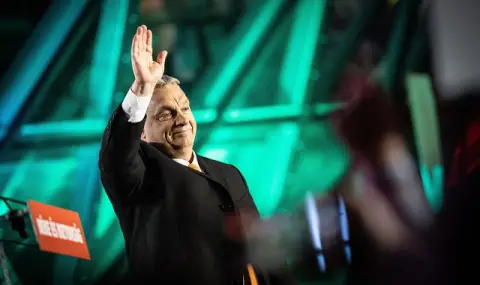Traditionally, the European Union ends its summer vacation in the last days of August with an informal meeting of foreign ministers - the political equivalent of fireside chats. However, given Hungarian Prime Minister Viktor Orbán's presidency of the 27-member bloc, the vacation has already turned into a sustained rallying cry.
From July 1 until the end of the year, complex European Union rules give Hungary, a country of 9.5 million people, the right to represent and speak on behalf of 450 million people. The problem is that Orbán is increasingly defending positions that the EU opposes.
The first two months of the six-month rotating presidency have already turned into "troll diplomacy," said Peter Kreko of the Center for European Policy Analysis. Orban "only wants to provoke more anger among EU leaders,", he said.
At a time when Russian President Vladimir Putin is the sworn enemy of the EU because of the war in Ukraine, Orban traveled to Moscow and befriended the autocratic leader. As China increasingly views the EU as its "rival system," Orbán travels to China to forge friendships and pursue Hungarian business interests. When the EU welcomed the coming to power of American President Joe Biden after 4 particularly tense years with Donald Trump, Orbán made a special tour of the Mar-a-Lago estate to visit his trusted political ally.
And all this happened after only eight weeks of EU presidency. To rub in the noses of the other 26 leaders of the bloc, he made the motto of his mandate "Make Europe Great Again", taken from Trump's famous slogan.
In a sign of growing discontent with Orbán, the EU decided not to allow Budapest to host the meeting of foreign ministers and instead to hold it at its headquarters in Brussels. Some member states have already refused to take part in other meetings in Hungary and sent officials instead of ministers, and officials say more such initiatives may follow.
Taking tough action is extremely difficult because most EU decisions need unanimity to pass, giving individual disgruntled members of the bloc enormous leverage. If such a member country holds the presidency, it becomes even more difficult.
In the European institutions, from the parliament to the commission, representatives will be on the alert every day until the end of the year for what Orbán's next move will be to discredit the bloc.
For years, EU authorities have accused Orbán of undermining democratic institutions and violating their sacred standards of the rule of law. Orbán retorts that the EU wants to discard the principles of individual states and impose a multicultural society in order to undermine what is left of Christianity on the continent.
Knowing that Orbán's turn at the helm was coming, EU countries wanted to make as many decisions as possible under Belgium's presidency, including key aid tranches for Ukraine, after Orbán repeatedly questioned sending aid to the country.
p>
There were initiatives in the European Parliament to cancel the Hungarian presidency altogether, but they failed because they were too complicated and drastic. After returning to power in 2010, Orban drew criticism from the chairwoman of the liberal group "Renew Europe" Valerie Aye, who called his mandate a "dishonest presidency" and his actions regarding Ukraine a "threat to security".
Unlike Britain, whose hostile behavior eventually led to it leaving the bloc, Hungary, a long-time recipient of billions from the EU to help the country rebuild from its communist past, has no such plans.
"We are not passive in Brussels, we have settled there: we are not moving out, we are settling in," Orban said at a summer camp in Hungary, convinced that the populist far-right in Europe and his version of "illiberal" democracy will continue to grow.
Experts say that it is Hungary's EU membership that makes it valuable to countries like Russia and China, offering a "back entrance" to the huge bloc they wouldn't have if Orbán decided to leave the community he hates.
"Being the mediator who solves certain issues, both for China and for Russia, and for whom he has an interest in exerting influence over European politics, is his way of presenting himself," said Maria Golubeva, former Minister of the Interior works in Latvia and a political scientist.
According to Creco, this is a situation where each is using the other for their own purposes.
"I absolutely agree that what Orbán is doing usually serves the interests of Russia and China, but it is also in his own interest - Orbán wants to weaken Europe from within," he said.
Translation from English: Anelia Penkova, BTA
